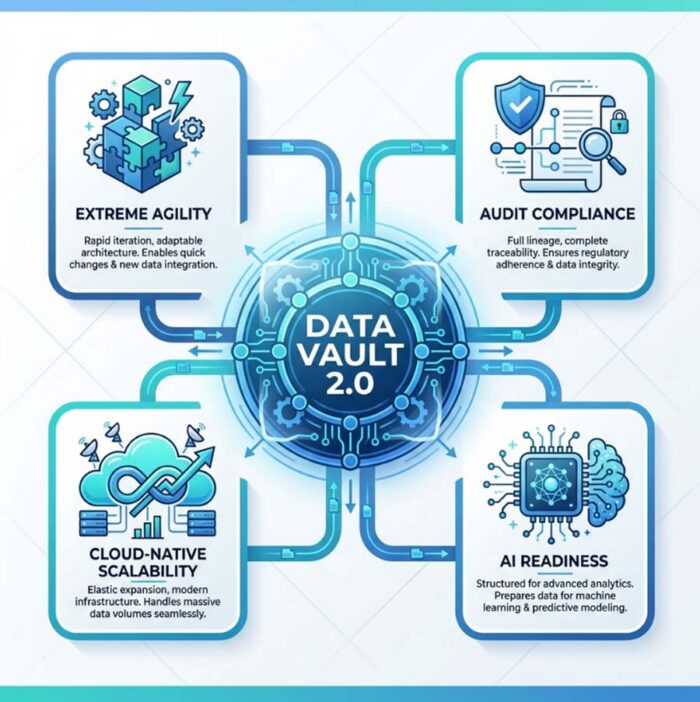Summary
When it comes to AI in higher education, the biggest obstacle to transformation isn’t finding the right tool; it’s the lack of foundational data governance and ethical readiness. This article discusses how higher education AI implementation will succeed only when leaders first address their institution’s data governance crisis.
[Estimated read time: 7 minutes]
Spoiler alert: Successful higher education AI implementation isn’t about the tool
The biggest obstacle to transformation isn’t finding the right tool; it’s the lack of foundational data governance and ethical readiness.
What if I told you that in three years, over 90 percent of higher education institutions will be using some form of artificial intelligence (AI) and yet, for most, it will fail to deliver truly transformative, equitable outcomes? That’s not a pessimistic projection; it’s the predictable result of treating a strategic organizational challenge as a simple IT implementation.
Today, many senior education leaders are rightfully focused on AI’s dazzling potential for personalized learning, automated administrative tasks, and accelerated research. But this focus on the “shiny new tool” obscures the critical, less glamorous truth: AI is merely the execution layer for an institution’s existing data infrastructure and strategy.
Go against the conventional wisdom of “Race for the tool!”
The standard approach to higher education AI adoption is a race to acquire and implement. Leaders task IT with finding the best generative AI platform for students, or sourcing a predictive analytics tool to boost retention. The conversation quickly devolves into a technical debate about LLMs, APIs, and licensing fees.
This tactical, tool-first perspective is insufficient for three reasons.
- It assumes the data powering AI is clean, accessible, and structured, which is rarely true in environments plagued by decades of siloed legacy systems.
- It ignores the cultural shift necessary for success: Faculty and staff who don’t trust the data or understand the ethics behind the algorithm will inevitably resist adoption.
- It fails to address the inherent bias and inequity that poorly governed AI can perpetuate, often by simply automating bad historical data.
In short, focusing on the tool allows leaders to bypass the much harder, more critical work of first establishing the right data foundation.
The Resultant perspective: First, govern AI at the source
At Resultant, we believe that successfully implementing higher education AI requires a radical reframe: AI readiness is data governance readiness. You can’t have an intelligent future built on an unstable past.
Our empathetic approach to problem solving starts with the human side of data. We partner with leaders to shift the conversation from what tool to buy to how an institution’s data, process, and people must change to support an ethical, impactful AI future.
This is a journey that requires courage—courage to face decades of technical debt, and courage to challenge organizational silos.
We see AI adoption as a three-part strategic evolution:
- Readiness: Conduct a meticulous data assessment to understand where your most valuable data (student outcomes, financial aid, curricular pathways) currently resides, who owns it, and how consistent it is (or is not).
- Governance: Establish clear, institution-wide policies for AI use, ethical data handling, and algorithmic bias detection. This is the courageous leadership step that moves past vendor promises and establishes accountability.
- Adoption: Integrate AI in targeted areas with clear, measurable outcomes that reinforce institutional mission, not just cost savings.
This framework is how we ensure that when an institution does flip the switch on a new AI tool, it runs on data that’s trustworthy, equitable, and strategically aligned with its mission.
Actionable recommendations for leaders
To move beyond the hype and establish a sustainable, transformative AI roadmap, we offer five concrete principles:
- Mandate Data Cohesion Over Tool Purchase. Before signing an AI vendor contract, complete a data strategy assessment that maps the flow and quality of all relevant institutional data. AI success is 80 percent data preparation, 20 percent algorithm.
- Establish an AI Ethics Council Now. Create a cross-functional body including faculty, IT, legal, and student affairs to draft a set of non-negotiable ethical guidelines for AI usage, focusing on bias detection and student privacy.
- Frame AI as a Partner, Not a Replacement. Shift the organizational narrative from “AI taking jobs” to “AI freeing talent.” Use AI to automate routine administrative tasks, allowing staff and faculty to focus on high-touch human connection like mentoring, research, and complex problem-solving.
- Prioritize Transparency and Explainability. Require all AI models used for high-stakes decisions (e.g., advising, admissions, financial aid) to have clear, human-readable explanations for their outputs. If we can’t explain the decision, we shouldn’t trust the machine.
- Pilot for Strategic Outcome, Not for Speed. Launch controlled, measurable pilot programs in low-risk, high-value areas (like optimizing facilities management or financial reporting) to build internal expertise and demonstrate return on investment before attempting institution-wide academic transformation.
Conclusion: Data discipline determines higher ed AI success
The AI revolution in higher education is n’ot a passing trend; it’ is a profound opportunity to redefine the student experience, research excellence, and operational efficiency. But the future won’t be won by the institutions with the biggest budget for new technology. It will be won by those who have the discipline to manage their data and the courage to lead with purpose.
The institutions that thrive will be those that slow down long enough to build trust in their data, confront outdated processes, and establish shared ethical guardrails. They’ll treat AI as a catalyst for meaningful change rather than just a shortcut.
Higher education’s most transformative AI outcomes will come from the leaders willing to strengthen their institution’s data foundation. Making governance a strategic priority will make AI succeed powerfully.
About the author

Curt Merlau
Vice President, Education Practice @ Resultant
Curt leads a team of outstanding education experts bringing Resultant’s mission and expertise to more places withi...




